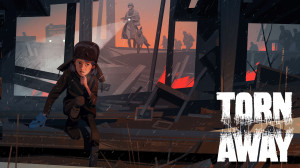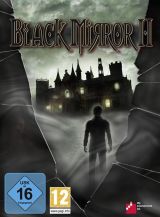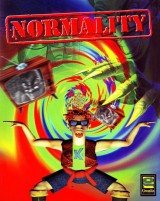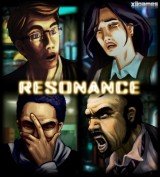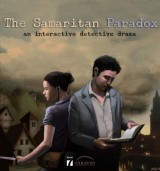Review for Monolith
In this classic-style point-and-click adventure, intrepid space explorer Tessa Carter must struggle to survive after crash-landing on an unknown planet. With strange gaps in her memory, however, and only an analysis robot for company amid a barren, unforgiving landscape, she has much to learn about herself and about her alien surroundings. What happened to her missing crew member and family? Can she trust her memories? And who is her mysterious saboteur, who always seems one step ahead?
With its traditionally inspired mechanics, Monolith's gameplay will be familiar to any point-and-click adventure enthusiast. Puzzles consist of environmental exploration, combining inventory items, and operating machines with unique mini-games. You’ll also frequently lean on your robot friend, C.O.R.E., to scan environments and access hologram recordings, gleaning puzzle clues and filling gaps in past events. The interface feels accessible and comfortable to control, particularly with a mouse, and even includes shortcuts to menus. The difficulty level generally strikes the right balance – satisfyingly challenging, though not punishing. A few grid-based movement puzzles towards the end can feel slightly clunky and tedious, but mini-games otherwise offer a fun change of pace.
The game guides you quite well in your overall goals with dialogue cues, though I would’ve appreciated being able to flexibly access a more defined list of objectives. Monolith generously provides convenience-enhancing options to avoid common point-and-click pitfalls: hotspots can be toggled on and off, eliminating pixel hunting; troublesome mini-games can be skipped; and a walkthrough is accessible via the menu to avoid getting hopelessly stuck. These can be ignored or disabled for those seeking a greater challenge, but there’s no penalty due to accessing them (besides perhaps a sense of dented pride for more experienced adventurers).
Despite using it as a last resort, I occasionally had to consult the walkthrough, as I found connections between puzzle elements weren’t always clear or requirements were sometimes even slightly misleading. At one point I combed the environment for an item listed as required, only to discover it wasn’t actually needed. The newly acquired hologram function caused issues at other points, with clues sometimes feeling quite opaque. One hologram only directed me to search a specific place for a clue, meaning I didn’t think to look anywhere else for similar inklings; I also didn’t realise I needed to rewatch another hologram, precisely at a particular point in the plot. A few simple prompts from the characters (which are provided at other times) could solve these issues, or perhaps even a hint system instead of resorting to the full walkthrough after progress grinds to a halt – C.O.R.E., the helpful robot, is woefully underused in this respect.
Monolith's story begins simply enough and ramps up the intrigue progressively, starting with a few essential mysteries and objectives and switching to more focus on practical considerations post-crash landing. As Tessa remembers little about her original mission, it takes time to connect to her story, making this a relatively slow burn. She also starts her quest alone, but this is soon alleviated with the introduction of C.O.R.E., bringing dialogue opportunities that reveal more about Tessa’s personality and motivations. C.O.R.E. also injects some sass and humour with its deadpan, direct delivery that may not have tickled me as much as intended, but I did find quite endearing.
Dialogue is mostly predetermined, with little freedom to choose responses, giving interactions less of a dynamic, player-led tone. Interactions largely feel lively, however, though environmental observations can be quite bland.
The story takes an increasingly personal turn in the last acts, subverting expectations of a typical sci-fi narrative; nevertheless, this would’ve been more impactful had the twist not felt like one I’d experienced before, and I guessed a couple of major reveals quite early on. At worst, players might feel cheated by this turn. Otherwise, I enjoyed the character-centric shift in focus and related to the narrative themes, though there might’ve been more points of connection between the contrasting game parts.
The environments are a joy to explore, featuring lushly detailed and atmospherically lit hand-drawn backgrounds. These contrast well with cel-shaded 3D models complemented by motion-capture animation, giving characters lifelike movements. These can be slightly awkward at times, with some jerkiness and interactions that don’t quite line up, but this isn’t immersion breaking.
Monolith's music is subtly atmospheric, with fluid transitions mirroring tonal shifts. This isn’t particularly memorable overall, though, with few obvious thematic changes throughout, though it’s understated enough not to feel repetitive. However, greater distinction would’ve enhanced the atmosphere and tension further. Meanwhile, the main voice acting is quite strong but let down by some unevenness across the game.




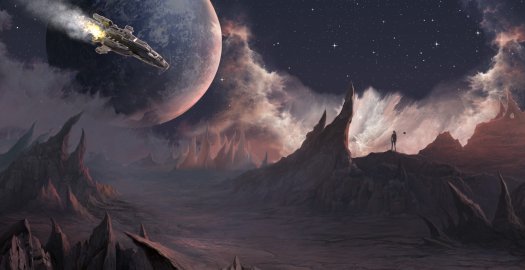






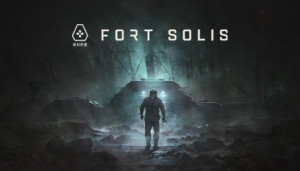
![[I] doesn’t exist - Game Review](https://cdn.nivoli.com/adventuregamers/images/screenshots/47338/header__medium.jpg)


,_con_logo__medium.png)

